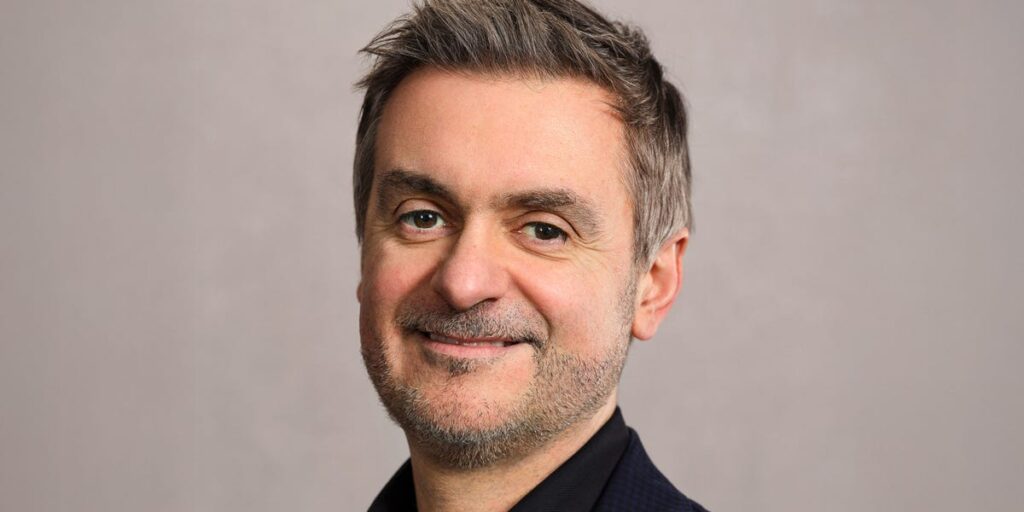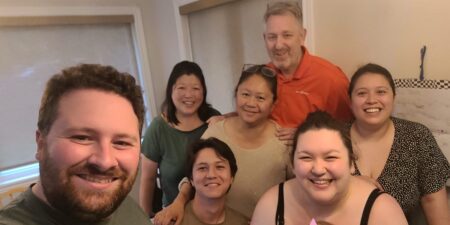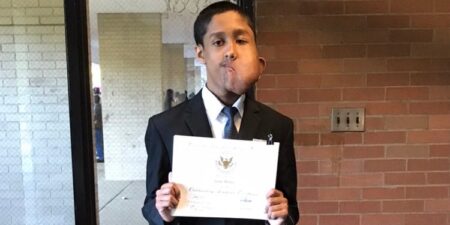Part-time rocker. Part-time philosopher. Full-time tech boss. Meet Marco Argenti, the executive at the helm of Goldman’s push into artificial intelligence.
Argenti is Goldman Sachs’ chief information officer, but his interests stretch beyond finance. Before joining Goldman in 2019, he was a top Amazon executive, helping build out its cloud-computing business. He also plays in a Seattle rock band and has long been fascinated by philosophy — particularly the ways technology can shape people and their decisions.
That perspective has helped shape his view of AI. At Goldman, Argenti oversees a 12,000-person engineering team — one of the largest on Wall Street — and has helped lead the bank’s push into artificial intelligence, including the rollout of its internal generative AI platform, GSAI Assistant. Argenti sees AI as a tool that will not just boost productivity, but also redefine career paths and even save lives.
In a recent interview with Business Insider, Argenti shared his view of AI’s potential to impact his engineers, Wall Street, and the world — starting by helping more people learn to be a boss by managing machines before managing people.
Below is our conversation with Argenti, edited for length and clarity.
Goldman has a workforce of roughly 12,000 coders reporting to you. What do different groups do, and how is their work being impacted by AI?
There are several ways to slice it.
We have developers sitting in the business units. Developers working on our trading stack; developers working on our private wealth advisory website; or developers working on our Marquee platform for institutional and corporate clients for example.
Then there is a central group — over 3,000 people — that sit in what we call Core Engineering. Those people are creating the common platforms used across the firm, like data centers and cloud, networking, storage, middleware, and then higher-order services such as identity and access management, APIs.
We were one of the first firms to establish an interesting profession within engineering called strats. They’re similar to quant developers, but they’re also coders, and they write code specific to, let’s say, risk or pricing models. We have over 2,000 of those. Those people are unique because today they’re also morphing more and more into data science.
Do you think AI could replace some coders? Or is it more about how the role of a developer evolves?
I think it’s more that it’s going to redefine the profession through replacement at the task level than at the job level. The metric I like to look at is output of the organization — what can we produce for the business?
Most CEOs are saying, “There is almost an infinite supply of great ideas that we have to wait on. And it’s just not in the budget.”
With AI, you will be able to break that paradox and scale output with the option of adding people or not. I see it as a force multiplier.
Do you expect Goldman to have more, fewer, or roughly the same number of coders in five years as a result of AI — and why?
I expect to have more output. I expect a change to the composition of the workforce — for example, more senior engineers relative to junior. If you ask me the net number — up or down — it’s hard to say at this point. It will really depend on how we see output growing and how we see that translating into growth.
We are in a growth phase. We have a lot of inputs on the business side to do more and to grow faster. So it’s nice to have the option, but the reality is going to be determined by our appetite to reinvest.
How has AI changed your own workflow? What do you use it for personally?
I had a huge backlog of projects — websites for my charity or my music and all that — that I absolutely never had time to do, like ten years of backlog. I am able to do them literally now on weekends.
At work, we have the GS AI Assistant, which is a pretty powerful AI tool. It uses the latest models and is connected to firm data. That’s my first go-to for questions.
There’s a lot of fear around Agentic AI, or systems that act autonomously to complete tasks. What are concerns, if any?
Risk has been top of mind for us. Autonomous operation of an agentic system is powerful. You need to be very careful that it reduces risk, not increases it.
One of the key things for us is how we determine what agents can do. We put rails around agents so their entitlements are restricted
Think of it like autonomous driving: if the agent’s job is to go from point A to B on a surface street and deliver a package, you forbid access to highways, forbid turns outside the route, forbid speeds above a limit. Even if they come up with output that could be unpredictable, the actions they can actually take are limited.
Does AI change what it means to build a long-term career in finance? What kinds of skills will determine success in the future?
We can get people to accelerate their path: to go from individual contributor to being a manager by starting to manage AI agents before they manage people. They’ll learn to describe tasks, explain and break them down; they’ll learn to supervise, to trust but verify. The technology accelerates those skills of leverage and delegation.
Historically, you tend to do a lot of work yourself, and then you get some leverage and resources you can delegate to. I think now you almost come with your own augmented team, and therefore, you accelerate your seniority in managing resources. It also opens minds to the bigger picture because AI is a sounding board for ideas.
Do you think AI could free employees to achieve better work-life balance, or will it more likely push expectations even higher?
Return on attention is going to be one of the biggest currencies for AI. Every developer, for example, will have a protective shield of agents to remove noise so they can focus on what creates maximum value.
That creates the potential for better balance, but whether that happens or not really depends on how companies decide to use the productivity — whether to reinvest it or to give it back.
What keeps you up at night? Do you fear specific vulnerabilities where the whole system could break down?
One worry is that people might over rely on AIs, creating complacency.
If you have high skills and high delegation, that’s a very good quadrant. If you have low skills and high delegation, that’s not a good quadrant.
My biggest fear is over-reliance without the capability to understand and supervise.
Imagine if autopilot gets so good that at one point, in an airplane, you decide that you don’t need the captain anymore. That would not be a good idea. We’re always going to need the captain.
If you look 10 or 20 years ahead, what do you see as the biggest ways AI will change how people live and work?
There’s always a risk that there might be an even bigger digital divide between people who are really great at leveraging AI and those who are not. Or maybe between people who can afford different levels of access.
Today, you have the $20 subscription and then the $200 subscription that gives you more. What if there was a $2,000 or $20,000 subscription that is incredibly good, but you can’t afford it?
I don’t personally think that will happen, because it could have been true for computers. At one point, maybe it was, but then the PC and the internet created the counteraction. Still, it’s a potential problem.
Another one is energy consumption. I’m hoping advances make AI not only more powerful but also more efficient, so we don’t create an energy distribution issue.
You’ve also applied technology to causes outside Wall Street, like your cancer charity work. How do you see AI contributing to advances in health, science, or society at large?
We are entering the age of software in medicine. DNA mapping, sequencing mutations, understanding pathways, reprogramming the immune system — it’s like programming code.
A few years ago, I lost a good friend to pancreatic cancer. Soon after, I joined the advisory board of the Fred Hutch Cancer Center in Seattle.
Our mission is in five years, to give a million years of survival back to patients. By elevating standards of care and discovering new combinations, I believe it’s possible. Early signs are strong.
At its core we are asking the question, can AI cure cancer?
Read the full article here
















